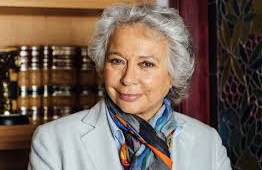To facilitate such changes, CBD should indeed be removed, or de-scheduled, from the Controlled Substances Act and Marijuana should be immediately rescheduled out of its national Schedule I category.
Then the context in which marijuana is researched and discussed in public can shift. For now, both Florida’s restrictions and federal restrictions on the scheduling of cannabis still apply as states scramble to formulate respective regulations for research, access, education, innovation.
In my estimation, the state’s overall program growth in Florida to date is impressive.
Industry leaders have much to say, as well, as reported in Ruben Espinosa’s June 13, 2019 piece for Cannabis Business Executive, concerning whether or not the federal courts force cannabis out of the prohibitive Schedule I Class?
Industry insiders chime in loudly on the re-scheduling conversation with Top Ten Reasons NCIA Supports De-Scheduling Cannabis.
Even the objective ProCon.org highlights the debate in its recently updated “Should Marijuana Be a Medical Option.”
According to Cannabis Dispensary, the U.S. is currently Growing Largest Crop of Marijuana for Research in 5 Years, with the National Institute on Drug Abuse (NIDA) said it plans to grow 2,000 kilograms or 4,409 pounds this year at the University of Mississippi – solely for medical cannabis research purposes.
The fact that our clinical medical cannabis practice and the future of the cannabis industry is unchartered territory is a fair assessment. There is a distinct lack of past aggregated credible, published, accessible ongoing research or case studies. Medical cannabis research and development is indeed warranted.
With it, the national research and policy landscape is rapidly changing as well. Americans for Safe Access agrees with using Cannabis as a safer alternative to opioids.
The ASA highlights that it takes the FDA “an average of 9 years to approve any drug, but it only takes approximately two to four weeks for a medical cannabis patient with chronic pain to be approved by a state program.”
These patients then have access to purchasing the substance from a regulated state dispensary.
Americans for Safe Access firmly believes in “allowing states to set their own medical cannabis laws is a cost-neutral approach for the federal government to further address the opioid crisis.”
They have a dedicated “End Pain, Not Lives.” cannabis-over-opioids campaign in conjunction with the U.S. Pain Foundation.
In the 2018 issue of the INvisibleProject.org‘s annual “Medical Cannabis: One Therapy, Many Journeys,” Ellen Lenox Smith believes it is imperative for society to understand the following fact about medical cannabis: “it is an indigenous plant found in nature that is non-invasive and safe. To date, there is no reported case of death as a result of medical cannabis. The same cannot be said for opioid treatment.
Many current opioid users are curious prospective patients who need the most access, yet are affected most detrimentally by the federal Controlled Substances Act, before the further maze of state restrictions.
Nationally, on July 9, 2019, Florida’s vertical integration state model was ruled to be unconstitutional:
“A 1st District Court of Appeal decision in Tallahassee called the current, vertically integrated system unconstitutional for the way it caps licenses and charges companies with essentially being one-man bands — they must grow, process, package and sell medical marijuana without bringing in businesses to handle different parts of the process.”
Florida’s next steps include a few notable giant leaps if the state is to move effectively, responsibly, and innovatively into the marijuana future.
What tasks should Florida undertake in the immediate future? Maybe including a free, general public Cannabis Education component built into our state-mandated vertical integration cannabis model.
It would be possible to envelop such an educational program into the official state OMMU registry for easy access, a dedicated public cannabis education built into its existing medical marijuana program, similar to a driver’s training course but cannabis training.
Florida can even use their existing physician cannabis education model as a template.
We have several existing private, paid versions of general cannabis education for public participation and for careers in Florida’s medical cannabis industry.
Florida has existing integrated quality and safety control components due to the regulation that all Florida cannabis products are Phylos Certified.
Using Phylos, strains and products being verified for patients with genetic ID-based, DNA sequence analysis for authenticity, consistency, and overall cannabis plant quality.
Anyone can search corresponding MMTC FL dispensary on the comprehensive list provided by searching their respective medical cannabis company websites and entering the “batch number” located on any purchased cannabis product
During a recent July 9, 2019 FAMU-MMERI sponsored Community Forum, physician Dr. Michelle Beasley confirmed that in addition to the Phylos Labs certification, Florida products are indeed tested by three separate labs, two in the U.S. and one in China, for quality, health and safety issues: such as heavy metal, insecticide, pesticide levels.
Beyond ethics and responsibility, concerns also arise regarding privacy and the state Registry system with its vast patient and physician database.
When becoming a medical marijuana qualifying patient, your name is voluntarily added into a state registry, accessible to many parties: the patient, the physician, the dispensary, individual dispensary employees, law enforcement, and the state itself.
According to WeedMaps, the current medical marijuana Registry system used throughout the United States “does not set clear limits on who may access patient data,” continuing that this possibility of a health data: “subjects states to unnecessary liability for potential breaches of Personal Health Information (PHI) under HIPAA and HITECH.”
Patients appear on this Florida Medical Marijuana Use Registry for the duration of their time as an active Florida cardholder; patients remain part of this Florida permanent state record as a past cardholder and medical marijuana patient.
General consensus by physicians and patients on the positives of the Florida Medical Marijuana Use Registry are primarily the accountability of the state and transparency of the system for all participating parties.
The negatives of such a wealth of personal aggregated knowledge in the medical marijuana Registry are obvious: patient tracking, fraud, identity theft, increased physician liability, among others.
Primarily, HIPAA privacy concerns and database breach fears arise, highlighting the vulnerability and information cache of a comprehensive state registry system for compassionate care, or an official registry that records and archives licenses of any nature.
Physicians agree that “quick and easy patient Registry access” is imperative to the program’s success, while patients agree that fast access to their physician is paramount to making this program work for all parties.
Florida can address the majority of these issues by adopting standardized operating procedures agreed upon by legislators and administrators working together to make good public policy.
In his article on Good Data and Public Policy, Ryan Vevon Rapaport explores: “how policymakers, industry advocates, and pioneering cannabis-businesses can leverage historical data to understand the effect of specific regulations and use that information to structure cannabis markets that maximize positive impact and minimize negative externalities.”
Good cannabis models do exist for Florida to consider. According to Dr. Julie Moltke in her July 16, 2019 interview with Kim Wilson and the Responsible Cannabis Framework.
Speaking of the industry, how does Florida’s OMMU program look from a physician’s perspective?
A good physician’s career focus already incorporates many, if not all, of the same good medical practices and applicable training exercises required for a state-certified CME cannabis clinician.
In the present, many of these physicians have separate working medical practices in such fields as pediatrics and neurology, as is the case for Dr. Michelle Beasley, M.D. and Dr. David Bear, D.O. respectively. These physicians learn through their non-cannabis clinical experiences.
Florida’s CME physicians additionally maintain currency in cannabis medication to keep up-to-date with all of the changes and newest cannabis advancements and innovations.
As for the future? These physicians strive to ease pain, treat more qualifying conditions, and to help patients make informed decisions about cannabis medicine, and make wise product use self-guidelines at home.
These state-certifed CME physicians also work with Florida’s new Advisory Committee as discussed in my column The Front Lines.
Now that we know who these state medical marijuana physicians are, let’s examine the patients being treated.
What exactly are the qualifications to become a Florida medical marijuana patient? All 10 are listed on the official OMMU patient/physician site.
Florida’s medical marijuana program has evolved well beyond the confines of the state’s original, yet restrictive, 2016 “Compassionate Use” law, the interpretation and implementation of this law is the quizzical key to the proverbial cannabis lock box.
Concerning the current state program’s legal details, Florida cannabis patients must be at least 18 years of age and a Florida Resident, or a seasonal resident with a valid Florida driver’s license or identification card.
Patients must obtain legitimate medical records or documentation from a primary care physician describing their diagnosis, and subsequently bring these records to a marijuana evaluation appointment with a CME licensed physician.
Seen different doctors for a qualifying condition? No problem! Here’s how to easily request your medical records.
The qualifying patient must be diagnosed through a full in-person physical examination and assessment of medical history before receiving a recommendation by your selected certified physician for having one of the debilitating medical condition diagnoses listed above.
All patients must be entered into the Florida Medical Marijuana Use Registry by the physician who evaluated them.
Patients (and Caregivers) must also apply for their Registry Identification Card (Medical Marijuana Card) only if they need to purchase or carry a patient’s medical marijuana products on their person.
Need help? A designated caregiver can be added to your patient profile after proper documentation is submitted to the state. But an OMMU Registry ID card is not required in order to simply accompany a patient to purchase cannabis products inside a physical dispensary location
In such a case,the patient’s caregiver or other accompanying adult needs only to have a valid Florida identification card or driver’s license to temporarily relinquish to dispensary staff for the duration of the patient’s visit.
This situation most often occurs when a caregiver is needed to help a patient in a decision-making capacity, or if another adult is required to help a patient make currency transactions.
Patients and caregivers can submit an application online or by mail.
Once the application has been approved, a temporary Identification Card will be emailed to the patient immediately.
Qualified Florida patients will then be mailed a physical Identification card required by law to be kept on their person at all times, according to the state OMMU and Florida law enforcement officials.
Patients can then fill their order at a licensed Medical Marijuana Treatment Center of Florida dispensary location using their ID card as required identification for purchase of various cannabis products.
Medical marijuana products can also be delivered to a patient’s home, and several of Florida’s licensed dispensaries participate solely in the delivery program capacity and do not have a physical location for patients to visit.
Patients have to be re-certified every 30 weeks in order to receive a new medical marijuana recommendation. To maintain a valid Medical Marijuana Registry Identification Card, Patients & Caregivers must renew their Identification Card annually.
Renewals must be submitted at least forty-five (45) days prior to the present card expiration date; a complete renewal application, $75 application fee and required documentation must be submitted to the state for a patient’s continue to participation in the state program.
As part of the 2017 legislation, Florida A&M University, or FAMU receives $10 for every $75 identification card submitted by individuals approved to buy medical marijuana.
This allotted Florida state money funds the Medical Marijuana Research and Education Initiative, or MMERI, launched in response to the Florida Legislature’s funding allocation to educate “minorities about marijuana for medical use and the impact of the unlawful use of marijuana on minority communities.”
The Florida Department of Health, Office of Medical Marijuana Use can be accessed manually at 1-800-808-9580, online at Florida Department of Health’s Office Of Medical Marijuana Use, or email at medicalmarijuanause@flhealth.gov.
Contact Heather
Heather Allman
B.A.Ed., M.A, University of West Florida
Non-Profit Founder: Allman Education, medicalcannabis101.org
Location: Pensacola, Florida, USA
Phone: 1-850-287-2509
Web: http://medicalcannabis101.org
Twitter and Instagram: @allmaneducation
Email: heatherallman@outlook.com or heather@medicalcannabis101.org
Linked In: http://linked.in/in/heatherjallman


















